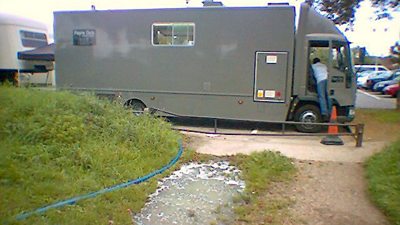Waste for the purposes of this guide is any product that is discarded or disposed of, including paper and other materials that are destined for recycling.
- Water and waste water is defined as water supplied from mains systems and waste waters arising from both fixed and mobile operations.
- This Water Management Standard establishes the minimum operating standards that must be applied at all sites and the legal issues you must be aware of. If you have any queries relating to this Standard then you should contact the Safety Advice Line.
Pollution prevention measures that you should adopt include:
- Checking whether there is any surface or ground water where you are working and obtaining and following expert advice on what can and cannot be done.
- Keeping activities, oil, chemicals, vehicles, plant and equipment away from surface waters.
- Using, abstracting or pollution prevention measures when disposing of water or wastewater to remain compliant with the authorities.
- Designing and setting-up appropriate drainage systems.
- Installing water efficient devices such as low-flush toilets and low-flow taps and showers.
- Identify activities that will use or discharge water or that may affect water quality through the SafetyHub assessment process.
- Seek to change or control activities to reduce the need to use or discharge water and/or to prevent the effect on water quality.
- Consult with the relevant environmental regulator where necessary to obtain consents and agree water use and pollution prevention measures.
- Control activities and implement water use and pollution prevention measures, and monitor their effectiveness, particularly during water restrictions.
What Can Go Wrong?
- Establish a prioritised list of hazards. (If complex break into before / during / after the activity) with the most significant first.
- Water and waste water if not managed correctly can have a number of environmental impacts as a result of its use and disposal.
- Excessive unmonitored potable water use is both costly and wastes a resource which is energy intensive in its production.
- Waste water from washing operations, catering trucks or vehicle washing can result in the pollution to water courses if not managed correctly.
- Waste waters may require consent for its disposal which if not obtained prior to an activity commencing can result in prosecution.
Legal/大象传媒 Requirements
- All waste water from activities such as catering, vehicle washing and floor washing must either be disposed of to a foul sewer with the appropriate consent or stored in a suitable bowser for disposal as liquid waste [see waste management].
Control Measures
Water Use
- All potable water supplies on 大象传媒 premises must be via a metered supply linked to the 大象传媒鈥檚 utility monitoring service.
- High water consuming activities such as catering and gyms etc must be monitored via automatic meter reading equipment.
Waste Water
- All waste water from vehicle washing, catering and other related activities must be disposed of via foul sewer.
- All waste water from special effects must be disposed of to foul sewer or stored in a bowser for disposal as liquid waste.
- Car park and other related run off must be disposed of to surface water drainage via an interceptor.
Consents
- Trade Effluent consents must be in place for any trade activity generating waste water on a 大象传媒 premises.
- Trade Effluent includes vehicle washing, washing of buildings external areas etc.
- Discharge consents must be in place for treated water to be disposed of to surface waters etc.
Division Specific Issues
Production, Events and Radio
- Waste water generated by special effects and catering vehicles must either be disposed of to foul sewer or to a bowser for disposal as liquid waste.
- Liquid paint waste from floor washing must have consent in place before disposal into a sewer.
Workplace
- Trade Effluent and Discharge consents must be obtained for vehicle washing, paint washings and industrial cleaning of buildings.
FAQs/Did You Know?
- No FAQs/Did you know items.
Recommended links
-
[大象传媒 Network only]
-
(大象传媒 Network only)
-
Water topics
-
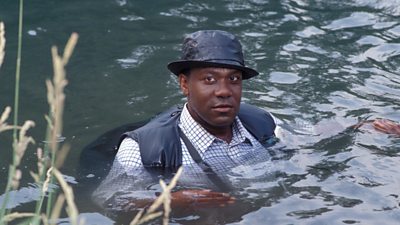
Water: Working On or Near
Guidance to working on or near water. -

Boats: Working on
A guide to working and filming from boats. -
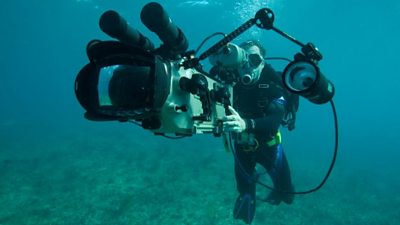
Diving
A Guide to Scuba Diving and free Diving in both open water and pools. -
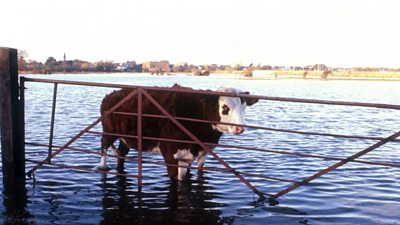
Floods and Coastal Surges
A guide to inland floods. -
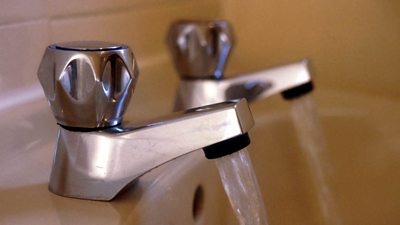
Legionella in Premises: Control of
This guidance provides an overview of how water systems are managed in premises to minimise the risks from the Legionella bacteria. -

Water and Waste Water Management
How to manage water and waste water arising from 大象传媒 activities -
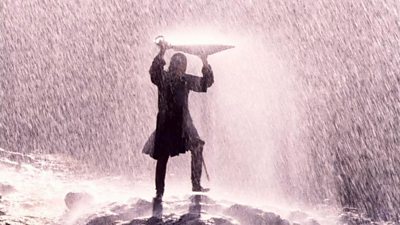
Weather
The 大象传媒 regularly film and record outside, exposing staff to a variety of adverse and changeable weather conditions during the course of their work. Thunderstorms pose a particular threat to those working at height outdoors, or with raised masts on broadcast vehicles. -
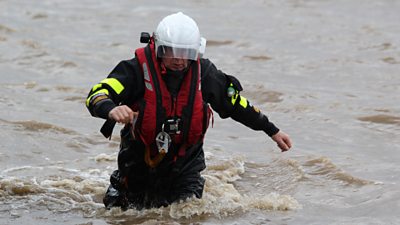
Wearing Your Life Jacket
Life jackets save lives and should be worn where there is a risk of entering the water unintentionally.
More from SSR
-
Your platform to record accidents, risk assessments, assurance monitoring and inspections
-
Safety Equipment Stores
Just one number to call: 020 3614 5155 -
大象传媒 Safety Guidelines
An A-Z of 大象传媒's Health and Safety Guidelines -
Safety Advice Line: 0370 411 0464 Email: safety@bbc.co.uk
Events guidance - key links:
- Exhibitions
- General Guidance
- Indoor Location Recce Checklist
- Outdoor Location Recce Checklist
- Major Incidents & Emergency Planning
- Marketing and Promotional
- Noise Exposure
- Planning and Management
- Responsibilities
- Responsibilities Form
- Laser Lighting Effects
- Strobe Lighting
- Temporary Stages and Rostra
Health topics - key links:
- (大象传媒 network only)
- Contributors Fitness to Participate
- Display Screen Equipment (DSE)
- (大象传媒 network only)
- First Aid and Welfare on Location
- International Travel - Risks & Health
- Manual Handling
- Mental Health: Homepage
- (大象传媒 network only)
- Personal Health and Wellbeing
- Pregnancy
- Psychological Trauma Support & Trauma Risk Management (TRiM)
- Tiredness and Fatigue
- Travel Health Contacts
大象传媒 High Risk - key links:
- CBRN and Industrial Spills
- Covert Filming
- Crisis Management and Security Support
- Demonstrations, Protests and Crowds
- Disaster Coverage
- Door Stepping
- (大象传媒 network only)
- (大象传媒 network only)
- Public Order
- Safety Equipment Stores
大象传媒 Journalism - key links:
大象传媒 Productions - key links:
- Aerial Filming and Airfields
- Animals: Displaying and handling for performance
- Boats: Working on
- Children and Young People
- Driving
- Electrical Equipment and Systems
- First Aid and Welfare on Location
- Food Safety (Cooking and Catering)
- Remote Location Working
- Roads and Streets: Working by
- Security of Productions on Location
- Stunts
- Tiredness and Fatigue
- Unmanned Aerial Systems (UAS aka Drones)
- Vehicles: Recording in, from and around
- Working at Height: Mobile Elevating Work Platforms
- Working at Height: Tower Scaffolds
大象传媒 Radio - key links:
- (大象传媒 Network only)
大象传媒 Security - key links:
大象传媒 Sport - key links:
About this site
This site describes what the 大象传媒 does in relation to managing its health, safety and security risks and is intended for those who work directly for the 大象传媒.
It is not intended to provide instruction or guidance on how third parties should manage their risks. The 大象传媒 cannot be held liable for how this information is interpreted or used by third parties, nor provide any assurance that adopting it would provide any measure of legal compliance. More information
Some links on this site are only accessible when connected to the 大象传媒 network
